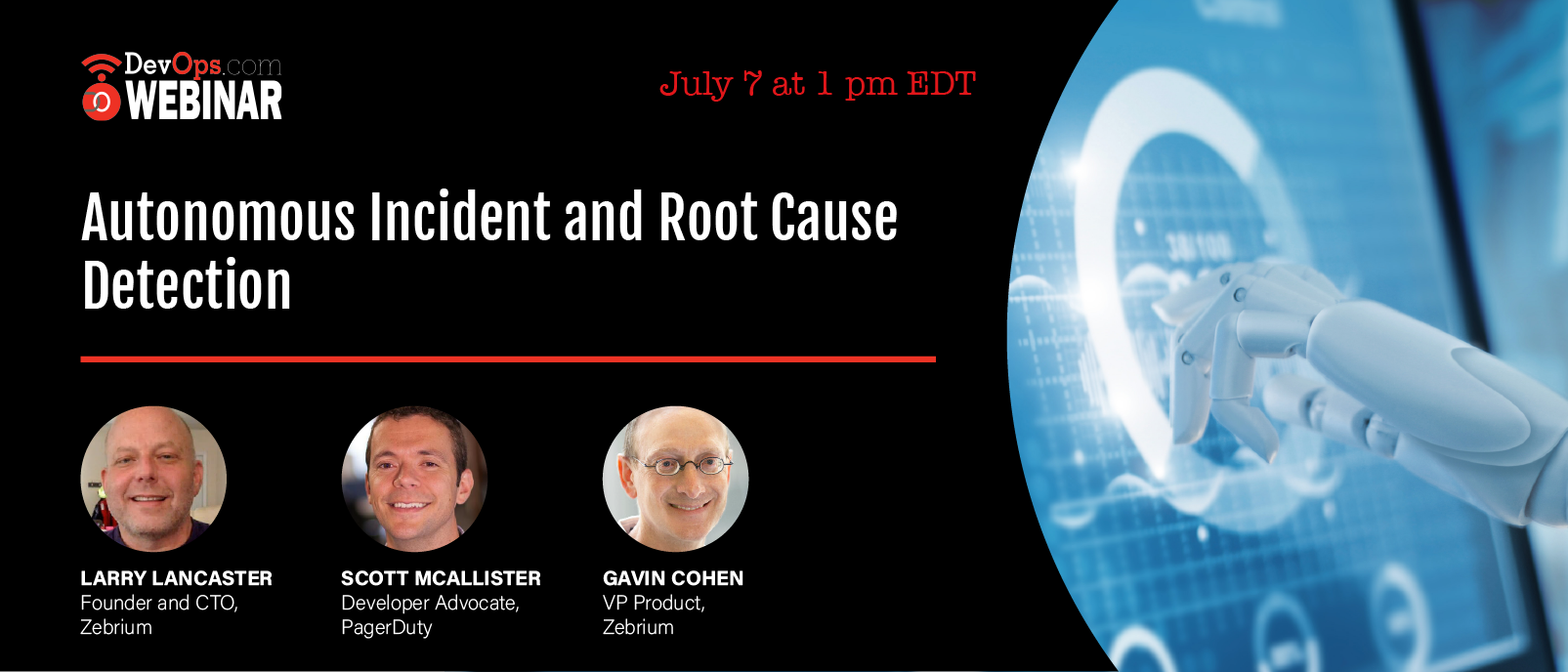Webinar
Think About Your Audience Before Choosing a Webinar Title

Sponsored by ZEBRIUM
What You’ll Learn in This Webinar
DevOps teams strive to automate everything. But finding incident root cause is still manual (hunting through logs and dashboards), and there is a long tail of problems for which automated detection rules don't exist. This is only getting worse as microservices, cloud and modern application architectures cause complexity and the number of possible failure modes to explode.
Fortunately, machine learning can be used to automate problem detection and root cause characterization. Software tends to break in ways that are noticeable as pattern changes in logs and metrics. Machine learning models can spot these anomalous pattern changes by looking for hotspots of correlated anomalies across logs and metrics streamed from a running application.
Join this webinar as we explore and demonstrate:
- Current state of monitoring and logging tools
- Machine learning techniques for anomaly detection in logs and metrics
- Deep dive on the Zebrium implementation of multi-layer ML for Incident and root cause detection
- Live demo of the technology showing two use cases:
-
- Zebrium ML detects and finds root cause of a problem using logs and metrics
- A third-party tool detects a problem and Zebrium ML finds the root cause







